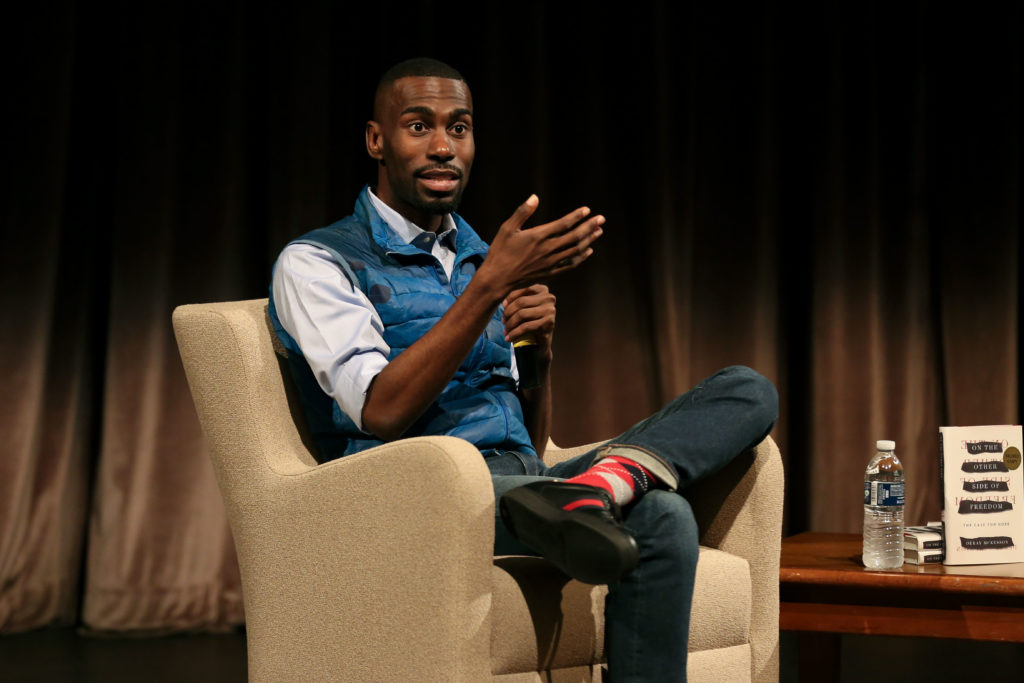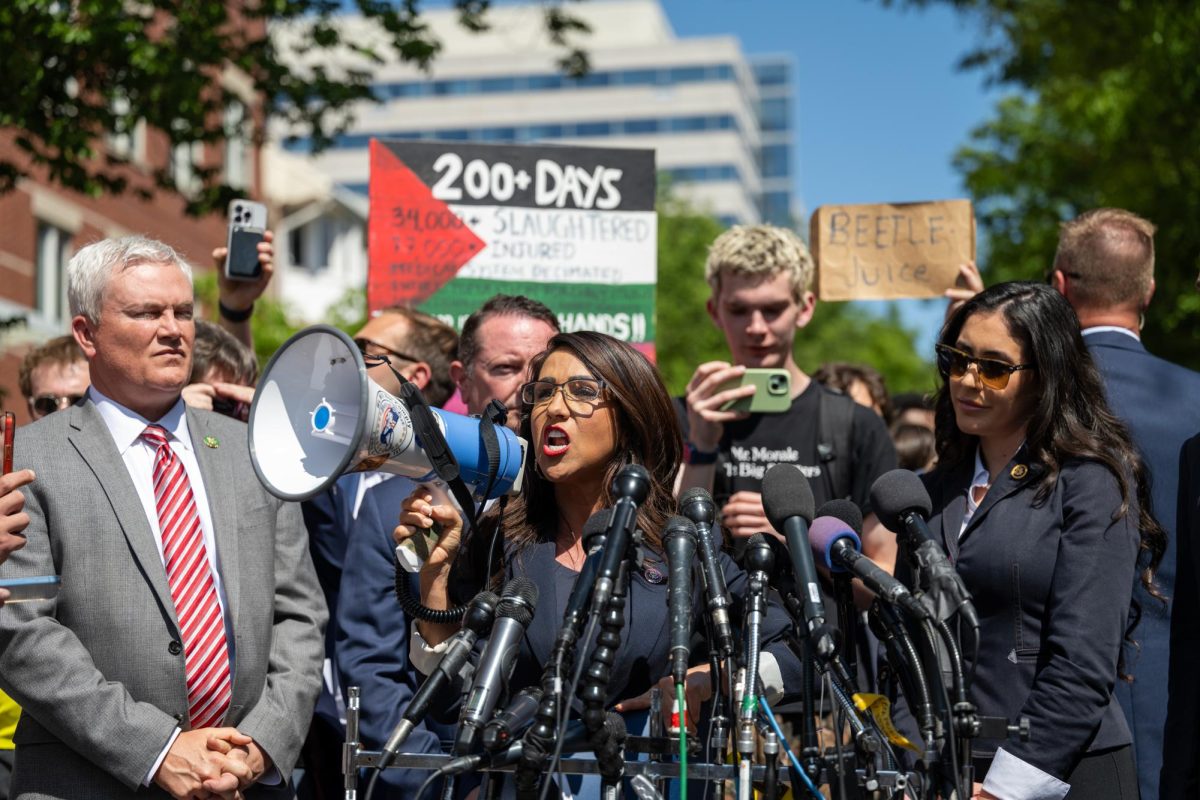A prominent civil rights activist and podcast host spoke at Dorothy Betts Theatre Friday about his new book and addressing racism from a structural standpoint.
DeRay Mckesson, the host of the podcast “Pod Save the People,” spoke to a crowd of about 100 people at the event, which was moderated by Pulitzer Prize-winning author Taylor Branch and sponsored by Politics and Prose. Mckesson shared anecdotes from his new book, “On the Other Side of Freedom,” a collection of personal essays ranging in topics including his relationship with his mother to his time as a civil rights leader.
Mckesson became involved in the Black Lives Matter movement after Michael Brown, an unarmed teenager, was shot and killed by a police officer in Ferguson, Mo. Protests erupted around the city, and Mckesson’s constant updates on Twitter launched him into the spotlight as a leader of the Black Lives Matter movement, which he continues today.
“We won the awareness battle,” Mckesson said. “What comes next is turning that awareness into structural change.”
Mckesson discussed the issue of police accountability, which he attributes to police union contracts that may allow police to get off with little to no discipline, especially in cases of brutality.
“I worry that we let the system off the hook too easily,” Mckesson said. “We need to normalize the idea that this system isn’t working – and that’s not hate.”
McKesson co-founded an organization called Campaign Zero in 2015 to help solve the issue of police violence. The campaign offers 10 proposals to address the problem, including demilitarizing police and creating an “honest” database of deaths caused by police officers.
Mckesson said the issue with The Washington Post’s database of police-caused deaths – one of the most widely cited – is that it only includes instances that involve officers on duty and guns.
“We wanted to create a database that includes all of the ways that the police kill people because we thought that was the most honest,” Mckesson said.
Mckesson said reforming police departments is not sufficient to address police brutality because the issues surrounding police and race are more permanent than individual officers or departments.
“There are good people who work in police departments, just like there are great people that are awful teachers,” Mckesson said. “This isn’t a matter of ‘is there a good person around?’ The system is broken.”
Another topic Mckesson focused on was language and its power to spark change. Mckesson said the best way to garner support when pushing for social justice is keeping a simple message.
“Sometimes the message gets lost in passion,” he said. “People often want to paint us as extreme to help legitimize their extremism. We shouldn’t participate in that.”
One thing that Mckesson said he wanted to make clear is the fact that just because racism is not as visible in our society as it once was, does not mean it does not still exist.
“People have become much more savvy about the way race is embedded into policy now,” Mckesson said. “What is also hard is that some of our best policy, that is ostensibly good about race, has adverse outcomes.”
Mckesson cited the example of the “Ban the Box” legislation, intended to aid felons in finding work by not requiring them to disclose their criminal history during the first phase of the application process.
This policy resulted in less black people getting hired, Mckesson said, because of an assumption of criminality associated with people of color.
To wrap up the conversation, Mckesson said he still has hope that this generation will have the courage to end social injustice.
“I don’t think of this as some lifelong endeavor,” he said. “I think that we should all try to make the world a better place, but my goal isn’t to engage in this forever, because I really think we can win. We can do this within a generation.”





